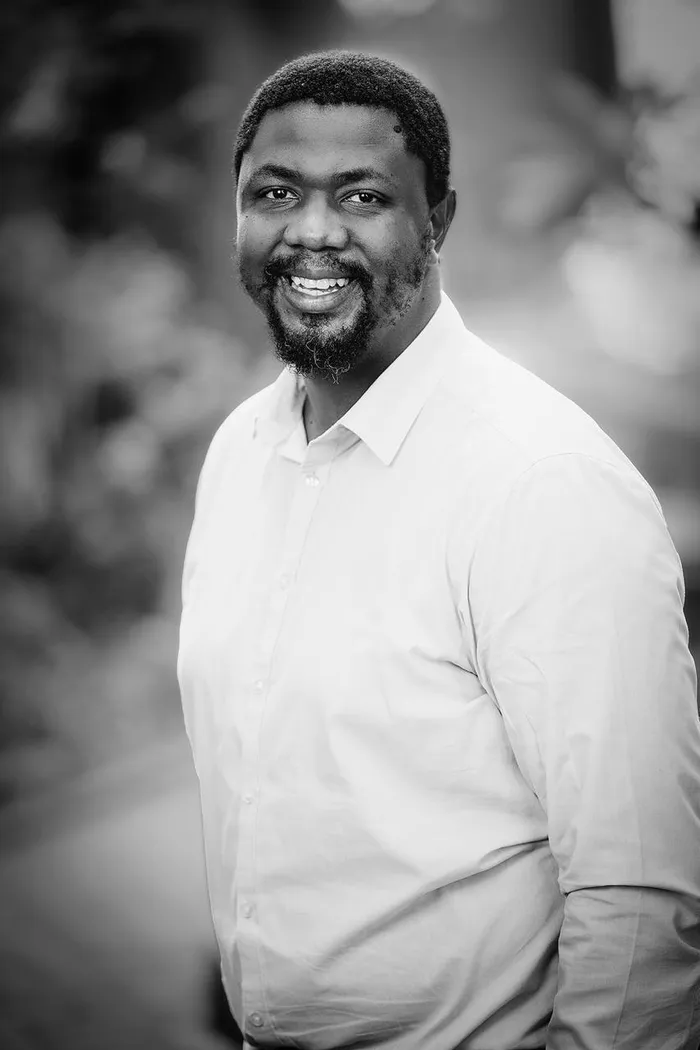
Murendeni Nefale is the founder and CEO of Chosen Epics.
Image: Supplied.
Murendeni Nefale’s journey from reluctant reader to purpose-driven entrepreneur is one marked by resilience, innovation, and a deep commitment to empowering South Africa’s youth.
As the founder and CEO of Chosen Epics, a youth-led storytelling and literacy venture, Nefale has placed the power of narrative at the heart of social change.
"I was not a big reader growing up. To this day, I am still not a big reader, I am a big story consumer," Nefale said.
His inspiration came from early experiences with visual storytelling, such as the Supa Strikas cartoon in local newspapers and Diary of a Wimpy Kid, which blended traditional books with cartoon-style storytelling.
These moments showed him how engaging, relatable content could ignite imagination and fuel literacy.
Chosen Epics is no ordinary publishing or reading initiative. It is a multidimensional platform that blends fantasy fiction, comics, audiobooks, and digital content with literacy programs focused on identity, resilience, and expression.
"What makes us different is our multi-pronged approach. We created a fantasy story, rare in South Africa that allowed us to expand into comic books, video content, and even an audiobook," Nefale said.
"This format helps us engage students in meaningful ways, while reinforcing what the school system already does."
At the core of Chosen Epics lies the belief that storytelling builds identity.
Nefale said the characters in his stories come from six continents, representing a diverse mix of race, culture, and gender. One of the main characters, Tumi from Soweto, reflects a reality many South African children will relate to, a young girl living with her grandmother and siblings while striving to improve her life.
"When children see themselves in these stories, it normalises their experiences and inspires them. It gives them the hope and confidence that they can achieve great things," he said.
But Chosen Epics is not only about inspiration. It is built on scalable, community-based impact.
Nefale said the organisation targets Quintile 1 to 3 schools and aims to partner with government and civil society to distribute stories and learning material.
“We own the rights and copyright to our stories, which allows us to provide digital copies to schools and enable free distribution through WhatsApp and other platforms,” he added.
Funding and access remain two of the biggest challenges for the organisation.
“It took me six years to write the book and even longer to get the concept ready,” Nefale explained. “Raising awareness is also tough. We still rely on word-of-mouth to get into schools, but once we do, teachers and principals are excited about the work.”
For Nefale, literacy is directly tied to economic mobility and dignity.
“Literacy is your voice. It is your ability to process, to think, to problem-solve. Without it, how can young people participate in society or the economy?” he said.
He believes that entrepreneurs across all sectors have a role to play in fixing South Africa’s literacy crisis.
“We must be intentional about creating platforms for youth to learn and grow. Internships and learnerships exist, but access remains a problem. Businesses must go beyond what currently exists and ask: what skills do young people really need?”
Nefale’s perspective is shaped by real-life encounters with the stark inequality in the country.
He recalled one moment during a visit to a school with his young son.
“I watched a boy, maybe Grade 6 or 7, open the gate for us. He looked like he had already given up. I looked back at my son and realised he will have so many opportunities just because of the family and support around him. That boy might never get those chances unless we intervene. That day reminded me why this work matters so much.”
Communities have embraced the Chosen Epics model.
He stressed that partnerships with schools, local educators, and corporations are essential to scale impact.
“We’ve set up a sponsorship scheme where companies can sponsor our books and programmes for schools that cannot afford them,” he said.
While the government has made progress, Nefale believed there was more that could be done at grassroots level.
“Some officials really care and work hard, but the challenge is implementation. Policy means little if it cannot be rolled out effectively,” he said.
As for the private sector, he encouraged more action. “If we understood the severity of the problem, we would be more deliberate in offering support.”
Looking ahead, Nefale envisioned Chosen Epics reaching every province and eventually every continent.
“Our story already features characters from around the world. Now, we want our work to reflect that reach. Africa has the youngest population in the world, we need to equip our youth with skills and stories that can transform not just their lives, but the continent itself.”
“We exist to empower young people to be part of the solution, not part of the problem,” Nefale said.
“Every person has something they can contribute. The question is: what part will you play and will you do it well?”
BUSINESS REPORT